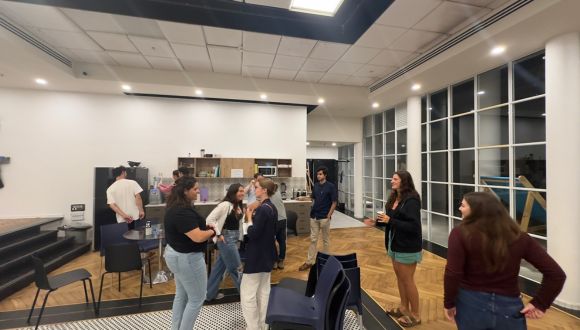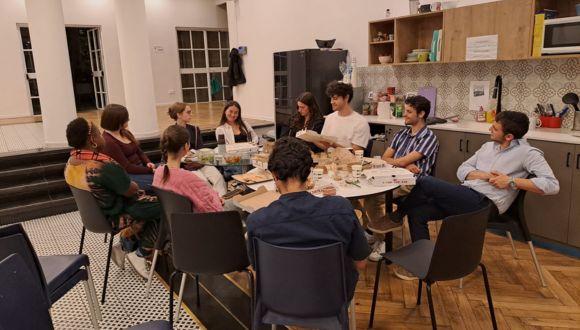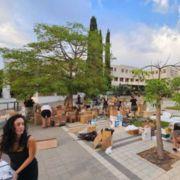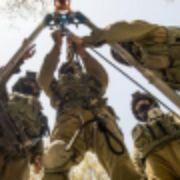Lone Soldiers Panel: International Students Share Their IDF Experiences
What is it like to serve in the Israel Defense Forces if you live alone in the country?
The Lowy International Student Life team and JLIC recently hosted a Lone Soldiers Panel, where international students could hear first-hand accounts from young people currently serving or who have already completed their service. For new immigrants, it was an opportunity to gain insights to prepare for their draft, while for others, it was a chance to learn more about life in Israel.
Several student soldiers volunteered to share their experiences, discussing their journeys, challenges, and the impact of their service.
“I was just 20 when I started,” one student commented.
“It’s good for young people because it teaches them responsibility and maturity.”
For some, enlisting was not an obligation, but a conscientious choice: “Joining the Israel Army was a decision fueled by my desire to connect with my heritage and contribute to what I believe in.”
Dealing with Challenges
The military service does not come without its challenges. Newcomers to the country may face cultural and language barriers. However, as many testify, the army's comprehensive support system helps new immigrants integrate and thrive.
For some, the transition from civilian life to military service was not easy: “During the service, the hardest moment was always being on”. The responsibility and constant readiness required can be a significant adjustment for young recruits.
One of the most traumatic experiences shared was a car accident involving fellow soldiers:
“It was a terrifying event, but it brought us closer as a unit.”
The participants stressed the resilience and support within the army community that helped them navigate such experiences.
Advice for Prospective Soldiers
For those considering joining the army, the advice was clear: “Be open-minded, be there, and be a part of the system. Do what the system needs from you,” advised one of the students.

Even if the role seems minor, like being a cook, it is still important:
“You can be that small part and still contribute meaningfully.”
New immigrants were strongly encouraged to learn Hebrew: “Even though Israelis are open to speaking in English, knowing Hebrew makes the service much easier.” The army provides Hebrew classes for soldiers who need them.
Military service is also a chance to connect with Israelis:
“Get out of your comfort zone more, and believe in yourself.”
Making a Difference
Despite the challenges, there are also moments of joy and fulfillment. A particularly moving story was about a man who lost his consciousness after an accident. “When he recovered, his wife brought lots of pizzas to thank us. It was one of the happiest moments for us.”
The sense of making a difference and feeling appreciated by civilians was a common theme for many former and current soldiers who spoke at the panel:
“The people are very grateful to soldiers, and this really means a lot”
Text prepared by Oleksandra Haievska, Global Sofaer MBA Student





